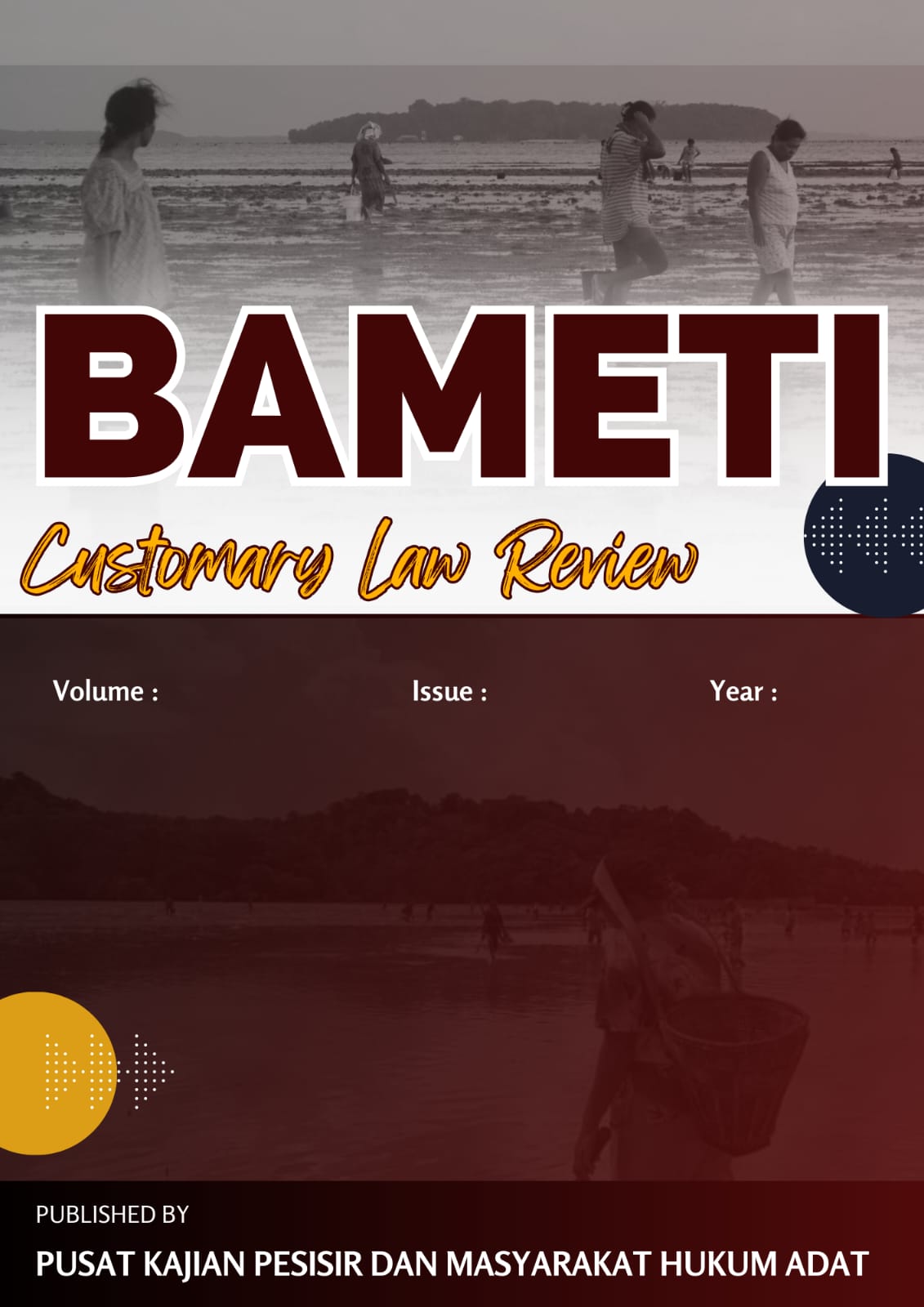Identifikasi Pela Gandong Dalam Merilis Hubungan Kekerabatan
Abstract
Cultural diversity in a society triggers conflict. Conflict resolution due to primordialism is needed in order to achieve a peaceful and prosperous society. The legal consequences of a conflict, as well as the inability of an indigenous community can lead to legal relations that are expected to strengthen unity. So it is necessary to identify existing cultural relations accompanied by kinship relations between communities as a guide in social life. The purpose of this article is to find out the culture in the community as a conflict resolution and the form of legal relations from the community due to a legal act that still upholds culture in order to achieve unity. The method used is normative juridical, diagnostic with document studies. The data used is public secondary data. The data collection method used is using the method of uninvolved observation. The results show that pela-gandong can be used as a conflict resolution, used as a tool for poverty reduction and causes kinship relations between people who do not have the same blood background or descent and establish a cooperative relationship that helps each other until next generation.
Downloads
References
Godlif, Yakob and S. Patra. “Eksistensi Pela Gandong Sebagai Civic Culture Dalam Menjaga Harmonisasi Masyarakat Di Maluku.” (2019).
Hasudungan, Anju Nofarof, Sariyatun, Hermanu Joebagio, Lianda Dewi Sartika, “Transformasi Kearifan Lokal Pela Gandong Dari Resolusi Konflik Hingga Pendidikan Perdamaian Di Maluku”, Fikri: Jurnal Kajian Agama, Sosial dan Budaya 5, No. 1 (2020): 37-50. https://doi.org/10.25217/jf.v5i1.784
Jati, Wasisto Raharjo, “Kearifan Lokal Sebagai Resolusi Konflik Keagamaan”, Walisongo: Jurnal Penelitian Sosial Keagamaan”, 21 No. 2 (2013): 393-416. https://doi.org/10.21580/ws.21.2.251.
Joireman, Sandra Fullerton, Nationalism and Political Identity (University of Richmond: Continuum, 2003), h. 20. Nationalism and Political Identity | Request PDF (researchgate.net)
Manan, Abdul. “Kekerabatan”. Adabiya, 17 No. 33 (2015): 1-87.
Mamudji, Soerjono Soekanto dan Sri, Penelitian Hukum Normatif, Suatu Tinjauan Singkat, (Jakarta: Raja Grafindo Persada, 2003).
Prayitno, Berchah Pitoewas, Hermi Yanzi, “Pengaruh Sikap Primordialisme Terhadap Upaya Pembentukan Proses Harmonisasi Masyarakat Multikultur”, Jurnal Kultur Demokrasi, Vol. 5 Nomor 3, (2017):3.
Soekanto, Soerjono. Pengantar Penelitian Hukum, (Jakarta: UI Press, 1986 Cet. Ketiga), h. 10.
Steven, Grosby, E. “Debate: The verdict of history: The inexpungeable tie of primordiality ‐ a response to Eller and Coughlan.” Ethnic and Racial Studies 17 (1994): 164-171.
Titaley, Elsina. Sanggar Kanto, Darsono Wisadirana, Mardiyono, “Pela And Gandong Culture as Basic of a Network Formation For Poverty Alleviation In The Village”, Advances In Social Sciences Research Journal (ASSRJ), 5 No. 3 (2018): 14-22. https://doi.org/10.14738/assrj.53.4247
Tualeka Zn, Hamzah. “Kearifan Lokal Pela-Gandong Di Lumbung Konflik”, Surabaya: Fakultas Ushuluddin IAIN Sunan Ampel, Hal. 10.
Hubungan kekerabatan - Wikipedia bahasa Indonesia, ensiklopedia bebas diakses pada 1 Juni 2024 Pukul 19.08 WIT.
Copyright (c) 2024 Risqi Mumpuni Dyastuti (Author)

This work is licensed under a Creative Commons Attribution-NonCommercial 4.0 International License.
Authors who publish their manuscripts in this Journal agree to the following conditions:
- The copyright in each article belongs to the author, as well as the right to patent.
- Authors are able to enter into separate, additional contractual arrangements for the non-exclusive distribution of the journal's published version of the work (e.g., post it to an institutional repository or publish it in a book), with an acknowledgment of its initial publication in this journal.
- Authors are permitted and encouraged to post their work online (e.g., in institutional repositories or on their website) prior to and during the submission process, as it can lead to productive exchanges, as well as earlier and greater citation of published work.
- Authors have the right to self-archiving of the article (Author Self-Archiving Policy)













